We are playing roulette with our security—but this time, through the fault of Washington and Washington alone, write Adam Twardowski and Michael O’Hanlon. This piece originally appeared on USA Today on January 25, before the partial government shutdown was resolved.
For a president, and members of Congress, who have declared preventing another attack from al-Qaida or ISIS to be among their top national security priorities, there is an enormous contradiction in their apparent willingness to tolerate an indefinite shutdown of so much of the government: the effects upon the Transportation Security Administration, as well as other parts of the federal workforce focused on national security such as the Coast Guard, the FBI and the Border Patrol. With 10 percent of the TSA workforce recently calling in sick, the risks are growing—not only in the sense that on any given day in 2019, a threat may slip through the depleted ranks of those watching our borders, but also in the longer-term threat to those institutions as places where talented and dedicated Americans will want to work.
An analogy is instructive. In 1981, President Ronald Reagan fired 11,000 of the nation’s 13,000 air traffic controllers when they went on strike. In that era, aircraft accidents happened considerably more often than today, so Reagan’s move was risky in more ways than one. As things turned out, however, an interim force of some 6,000 controllers was cobbled together out of those who did not strike, plus their supervisors and other qualified individuals; flight patterns did not suffer unduly for long, and major catastrophes were averted.
However, two key points need to be kept in mind as we face the current crisis. First, the controllers created their own crisis in 1981, with what many saw as unreasonable wage and work-hour demands. Reagan was in response mode, and could not be blamed for starting the problem in the way that Washington has today. Second, while the air traffic controller strike wound up fine for the country—and indeed, contributed to Reagan’s early reputation for decisive leadership—there were great doubts at the time about whether his gamble would end in tragedy, or at least a severely curtailed airline market.
There’s a reason we haven’t been attacked
Which brings us to today, when we are playing roulette with our security again—but this time, through the fault of Washington and Washington alone. The United States continues to debate how to secure its southern border against illegal immigration and drug flows. But the parameters of this debate have been set by an administration that is loose with facts and seems predominantly concerned with the political fallout the president would face from his base should he fail to build his promised wall on the Mexican border. The United States faces real threats to its security on a daily basis that a fact-based national debate could bring to the public’s attention. Such a debate would show that whatever their weaknesses and limitations, those who man our main checkpoints at airports, major ports of entry, and seacoasts appear to be having considerable success in preventing or deterring the movement of terrorists and weapons of mass destruction into this country. One rarely hears concern about such matters anymore. After the Cold War ended, we worried greatly about “loose nukes” in Russia—and whether they’d be detected before somehow reaching American shores. After the 9/11 attacks, we worried that terrorists could infiltrate the country again, perhaps by evading checklists and flying into a major airport undetected, or that they could again find a way to get weapons on a flight.
Say what you will about the inefficiencies of TSA, and the frequently-changing rules for how to comply with its screening protocols. Almost two decades after 9/11, we have not had another similar tragedy. Even attempts at lesser tragedies, like the famous shoe bomber, underwear bomber, and printer cartridge bomber are fading from memory, since they happened in the ten years after 2001 and not in recent times. This is a huge record of success and it only makes sense to give TSA some of the credit—and also, to show a little bit of national gratitude in the direction of its myriad employees, as well as the many other federal workers in the Department of Homeland Security doing related work at other places along our many frontiers.
Can we afford to risk our nation’s security?
It makes little sense to jeopardize this by failing to pay TSA, Coast Guard, and other key DHS employees longer than many will be able to withstand. The average American family usually has a few thousand dollars of easily accessible contingency funds at best. A survey by Bankrate.com found that roughly a quarter of Americans have nothing saved at all in an emergency fund, while 22 percent say they have savings, but not enough to cover three months’ expenses. Thus, working without pay for a month is more than a huge burden for many; it risks simply busting the family bank.
Beyond the immediate financial hardship is the larger message we send to a group we are so quick to disenfranchise and demean. The message we are sending can easily be interpreted as a vote of no-confidence and no-appreciation for what they do. Who would have their own child, or spouse, or even neighbor consider a job in the DHS today? At a minimum, we are on the risk of losing a full recruiting season for those who do so much to keep us safe.
Remember, it took the post-Vietnam military a decade to recover from its crisis of morale and purpose. Major companies that have lost their edge and begun to hemorrhage employees as a result of declining balance sheets often fare even worse, never recovering and simply going under. Moreover, it not only takes years for the Department of Homeland Security to recruit, vet, and train personnel for the myriad of jobs that keep us safe every day, it takes even more years for new employees to hone the skills and intuition that are so important to execute their jobs well. TSA was a work in progress throughout most of the 2000s, as was DHS. We should not want to relive such periods of turbulence because they reduce the nation’s security.
Can we afford to take such a risk with our nation’s security at a time when ISIS and al-Qaida, though on the run, still have tens of thousands of supporters and affiliates around the world?
The Brookings Institution is committed to quality, independence, and impact.
We are supported by a diverse array of funders. In line with our values and policies, each Brookings publication represents the sole views of its author(s).
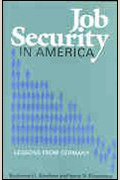
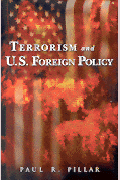
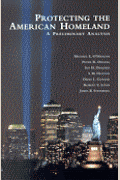
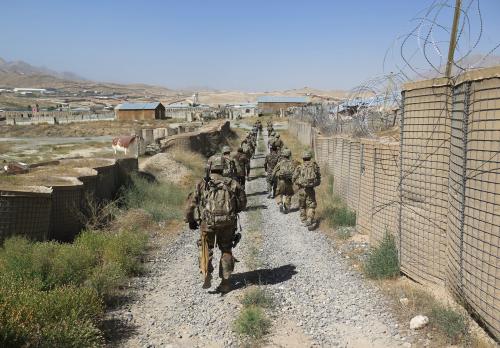
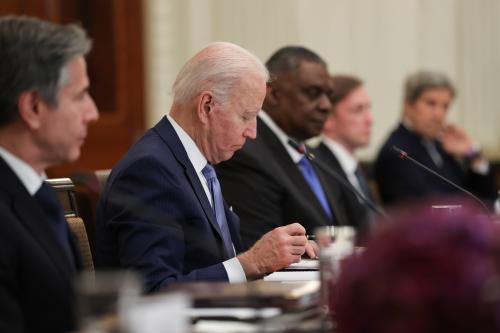
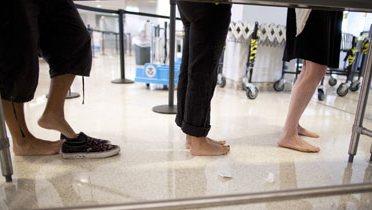



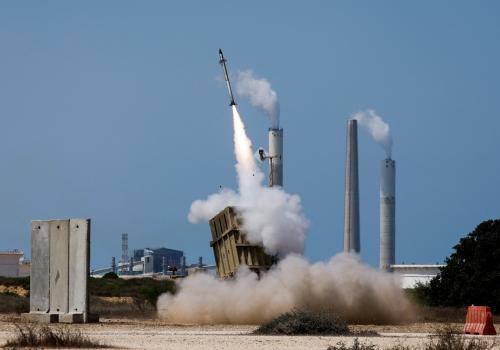
Commentary
During a government shutdown, we’re not paying our protectors
While ISIS and al-Qaida remain a threat
January 28, 2019